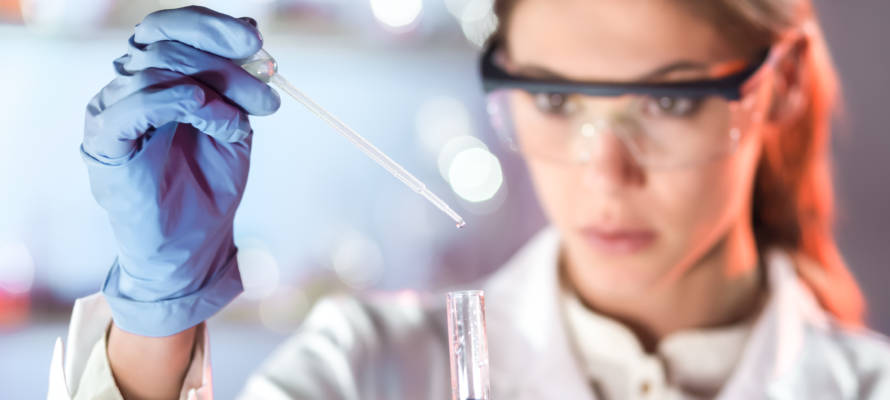The glass is very hard, yet capable of self-repairing at room temperature; it is a strong adhesive and, at the same time, transparent across a wide spectral range, from visible light to mid-infrared.
By Pesach Benson, TPS
Israeli researchers on Sunday unveiled a highly transparent, self-repairing adhesive glass that forms spontaneously upon contact with water. The discovery holds the potential to revolutionize numerous industries, including optics, electro-optics, satellite communication, remote sensing, and biomedicine.
The Tel Aviv University research team’s findings were recently published in the peer-reviewed Nature journal.
Led by Ph.D. student Gal Finkelstein-Zuta and Prof. Ehud Gazit, the material forms spontaneously at room temperature when exposed to water.
“In our laboratory, we study bio-convergence and specifically use the wonderful properties of biology to produce innovative materials. Among other things, we study sequences of amino acids, the building blocks of proteins. Amino acids and peptides naturally tend to connect and form ordered structures with a defined periodic arrangement.
However, during our research, we discovered a unique peptide that behaves differently: it didn’t form any ordered pattern but an amorphous, disordered one, characteristic of glass,” Gazit said.
At the molecular level, glass is a liquid-like substance lacking order in its molecular structure but possessing solid-like mechanical properties.
Typically, glass is manufactured by rapidly cooling molten materials, a process called vitrification, which “freezes” them before they can crystallize.
This process results in an amorphous state, giving glass its unique optical, chemical, and mechanical properties alongside durability, versatility, and sustainability.
The TAU researchers discovered that an aromatic peptide, consisting of a three-tyrosine sequence (YYY), forms molecular glass spontaneously upon the evaporation of an aqueous solution at room temperature.
“The commercial glass we all know is created by the rapid cooling of molten materials. The amorphous liquid-like organization must be fixed before it arranges in a more energy-efficient crystalline form, which requires energy. It must be heated to high temperatures and cooled down immediately,” Finkelstein-Zuta said.
“Conversely, the glass we discovered, made of biological building blocks, forms spontaneously at room temperature without the need for high heat or pressure. Simply dissolve a powder in water, and the glass will form. We made lenses from our new glass by dripping a drop onto a surface, where we control its curvature – and hence its focus – by adjusting the solution volume alone,” she explained.
The glass is very hard, yet capable of self-repairing at room temperature; it is a strong adhesive and, at the same time, transparent across a wide spectral range, from visible light to mid-infrared.
“This is the first time anyone has succeeded in creating molecular glass under simple conditions,” said Gazit.
“Equally important are the properties of the glass we created. It is a very special glass. It is very strong and yet very transparent – much more transparent than ordinary glass. Regular silicate glass is transparent in the visible light range, but the molecular glass we created is transparent deep into the infrared range.
This has numerous applications in fields such as satellites, remote sensing, communications, and optics. It is also a strong adhesive, capable of bonding different glasses together, and it can repair cracks that form in it.
“This set of properties does not exist in any other glass in the world, offering great potential in science and engineering, all derived from a single peptide – one little piece of protein.”
Enhanced transparency is crucial for creating high-performance lenses and optical components that require minimal light loss and distortion across a broad spectrum.
In the infrared range, this glass could revolutionize satellite sensors and communication systems that operate at these wavelengths with more efficient and effective data transmission and reception.
The glass’s optical properties might also be leveraged to create more precise and reliable diagnostic tools, such as microscopes and imaging systems to provide clearer and more detailed images for medical analysis.
Its self-repairing qualities could also significantly extend the lifetime of sensors and optical components, even in adverse environments.
Do You Love Israel? Make a Donation - Show Your Support!
Donate to vital charities that help protect Israeli citizens and inspire millions around the world to support Israel too!
Now more than ever, Israel needs your help to fight and win the war -- including on the battlefield of public opinion.
Antisemitism, anti-Israel bias and boycotts are out of control. Israel's enemies are inciting terror and violence against innocent Israelis and Jews around the world. Help us fight back!



